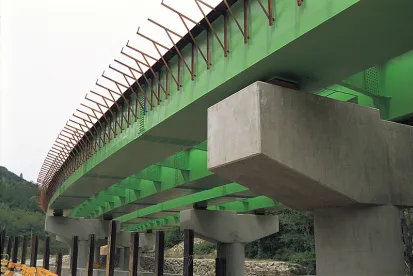The Polish government has announced details of the high-speed rail network to be built in connection with its Central Communications Port (CCP) project. The PLN 40 billion (€9.25 billion) planned rail network is even more ambitious than the PLN 35 billion (€8.10 billion) airport project.
With a target date of 2027, the CCP involves:
- Construction of new hub airport 40 km from Warsaw
- Reconfiguration and extension of Poland’s rail network with CCP as its hub
- Extension of the nearby A2 motorway along with numerous ring roads
- Transfer of major operations from Warsaw’s existing Chopin airport to CCP
- Development of a new city neighboring CCP
A key component of CCP, which initially would have the capacity to serve 45 million passengers annually, is investment in the rail network to reduce travel times from Poland’s largest cities to CCP to 2-2.5 hours and 15-20 minutes from central Warsaw. The government, acting through the Steering Committee for the CCP Rail Component, has announced that it plans to construct 1,300 km of new high speed rail lines at an estimated cost of PLN 40 billion (€9.25 billion). Prior estimates of the cost of the rail component for CCP were PLN 8-9 billion, so that this represents a doubling of the estimated cost of the CCP project.
How Will This Be Done?
First, with funding from the European Union designated for investment in rail transport. Initial components of the new rail network are already included in the EU’s Connecting Europe Facility.
Second, the rail network investment involves going beyond the spokes that will connect to CCP, to include lines such as Warsaw-Olsztyn or Warsaw-Lublin-Zamosc-Hrebienne (and Lviv), with the goal of connecting 120 cities with 13 million inhabitants and ensuring that all residents are within 30 km of a train station. Further, high-speed rail lines require tracks dedicated to passenger traffic that do not mix with freight traffic. This will require a restructuring of much of Poland’s rail traffic.
Third, construction of the new rail lines will be undertaken by a new special purpose company – rather than PKP PLK, the existing manager of the Polish rail network with 18,513 km of rail lines and associated infrastructure. The justification for this is that only 43 km of new rail lines have been built since 1989, so that PKP PLK has experience in renovation of existing infrastructure, but not with respect to planning and project management of new rail lines on such a scale. The legislation authorizing CCP contemplates the creation of special purpose companies for such purposes.
Fourth, notwithstanding the use of this special purpose company, this major expansion has the backing of all necessary parties. The Steering Committee for the CCP Rail Component that approved the plan consists of, among others, the Secretary of State in the Ministry of Infrastructure and Plenipotentiary of the Government for CCP, the Minister of Investment and Development, the Minister for Enterprise and Technology, and the President of Polish State Railways (PKP).
The government admits that completion of such an ambitious program will take longer than 2027, and it gives 2030 as a target date. Even if CCP itself encounters delays, it is hoped that the rail network improvement program will provide long-lasting infrastructure benefits to Poland.




 />i
/>i

